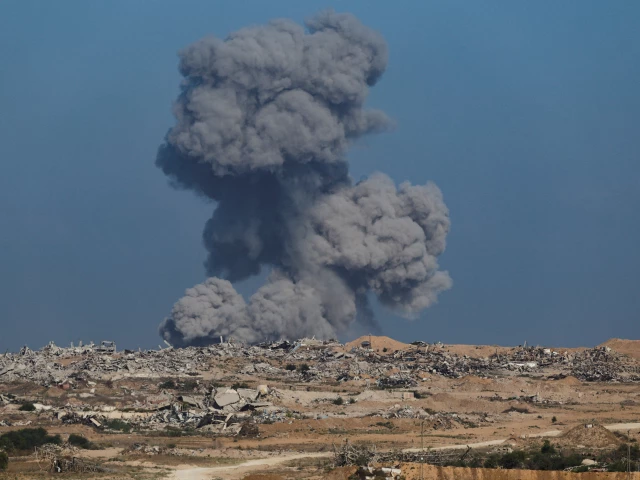Islamabad
Pakistan welcomed the peace plan of American president Donald Trump, reporting potential participation in an international stabilization force (ISF) which could be deployed in Gaza.
On Tuesday, on Tuesday, the Minister of Foreign Affairs Ishaq Dar, who was part of the hectic diplomatic efforts with his other counterparts from the Arab and Islamic countries, said at a press conference here that Indonesia had proposed to deploy 20,000 soldiers in Palestine.
“We hope that Pakistan’s leadership will also make a decision in this regard,” said Dar, while answering a question of whether Pakistan would join the ISF proposed for deployment in the region.
The minister, however, said that the proposed force comprising troops from Muslim countries would not be deployed within Gaza, but would only help agencies from the application of Palestinian laws and the police. He added that the proposed plan would have the support of the United Nations Security Council (USC).
President Trump’s 20 -point peace plan, unveiled on Monday alongside Israeli Prime Minister Benjamin Netanyahu, raised many eyebrows and has aroused questions about whether the initiative would lead to a two -state solution.
Dar, however, rejected such criticism, insisting that there was no change in the position of the principles of Pakistan on the question of Palestine. He clearly indicated that Pakistan supports a solution to two states with the frontiers before 1967 and al-Quds al Sharif as capital of the future Palestinian state.
The plan, supported by eight Muslim states, including Pakistan, aims to apply a cease-fire, protect civilians and rebuild areas torn by war. DAR confirmed that by virtue of the proposed agreement, an international peacekeeping quota would be deployed in Palestine. He said that Pakistan’s management would soon decide to contribute to troops, noting that Indonesia has already proposed to send 20,000 soldiers.
Dar stressed that Hamas should not oppose the plan saying: “We were assured that Hamas will support this initiative”. He explained that the peace proposal had followed a meeting between President Trump and the leaders of eight Muslim countries, where they discussed the urgency of stopping violence in Gaza.
The talks turned around the Trump peacetop at 20 points, a manager manufactured by his team to meet immediate humanitarian needs, ensure a cease-fire and trace a path to negotiations. According to DAR, Muslim states insisted on modifying parts of the American draft before approving it.
He said that the central objectives of Muslim leaders were to stop the bloodshed, to allow humanitarian aid to flow into Gaza, to prevent the movement of Palestinians more and to facilitate the return of people forced to flee. The plan also considers the reconstruction of devastated areas and measures to block the Israeli annexation of the West Bank.
Dar recalled that before the session of the United Nations General Assembly, Prime Minister Shehbaz Sharif had initiated numerous consultations with Muslim counterparts in Gaza. “Our collective effort was to find a possible way to bring peace to Gaza,” he said.
During the 80th session of the Unga, the speech of Prime Minister Shehbaz was widely appreciated, added DAR, noting that several world leaders personally thanked him for having greatly represented the Palestinian cause.
Beyond the joint meeting with Trump and the Arab leaders, Shehbaz also had separate interviews with the Austrian Chancellor, the Crown Prince of Kuwait, the president of Sri Lanka, chief advisor to Bangladesh, Secretary General of the United Nations António Guterres, and the president of the World Bank.
DAR qualified all these meetings as constructive, emphasizing Pakistan’s intention to remain an active player in diplomatic efforts to end the Gaza conflict.




